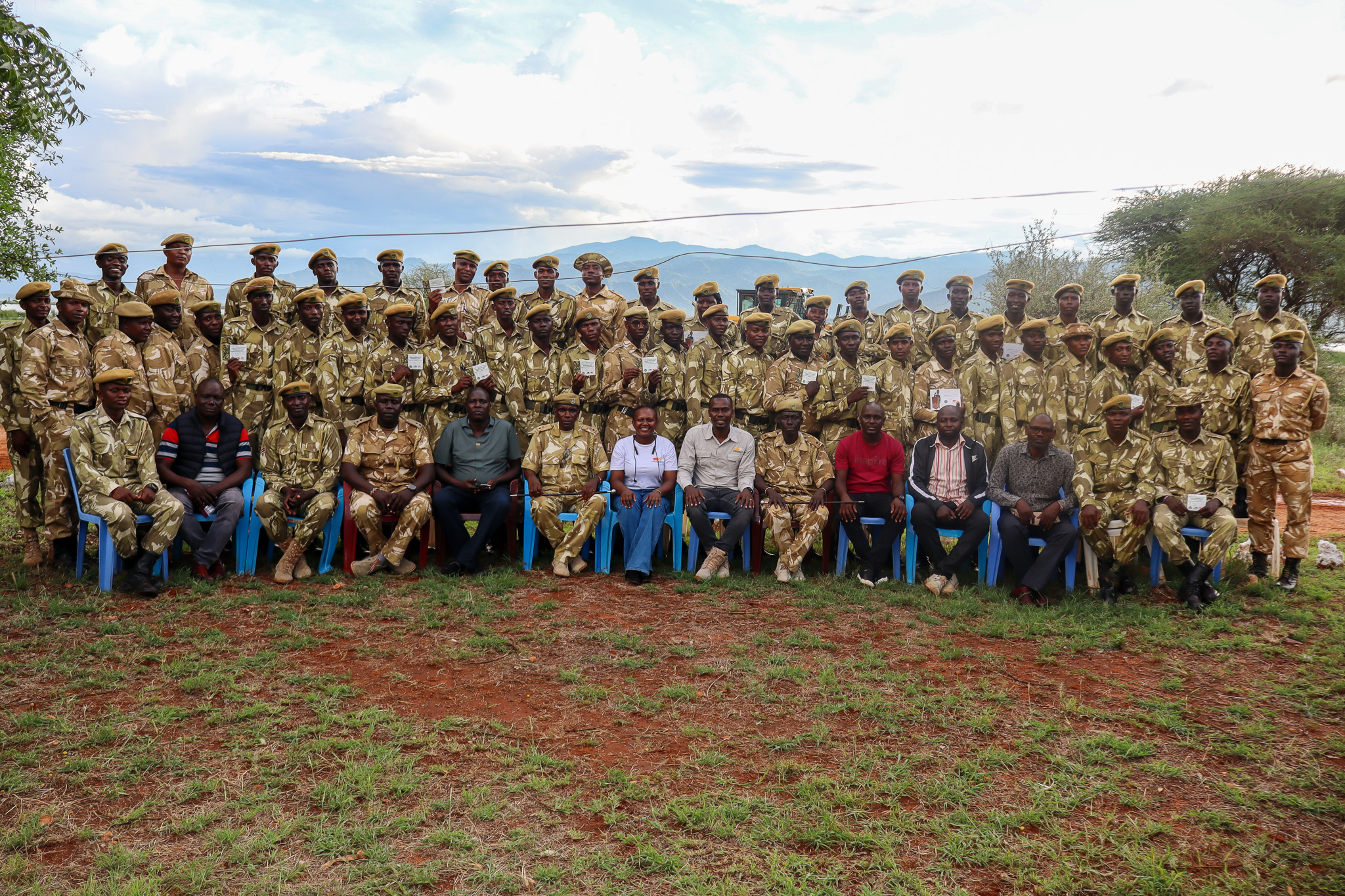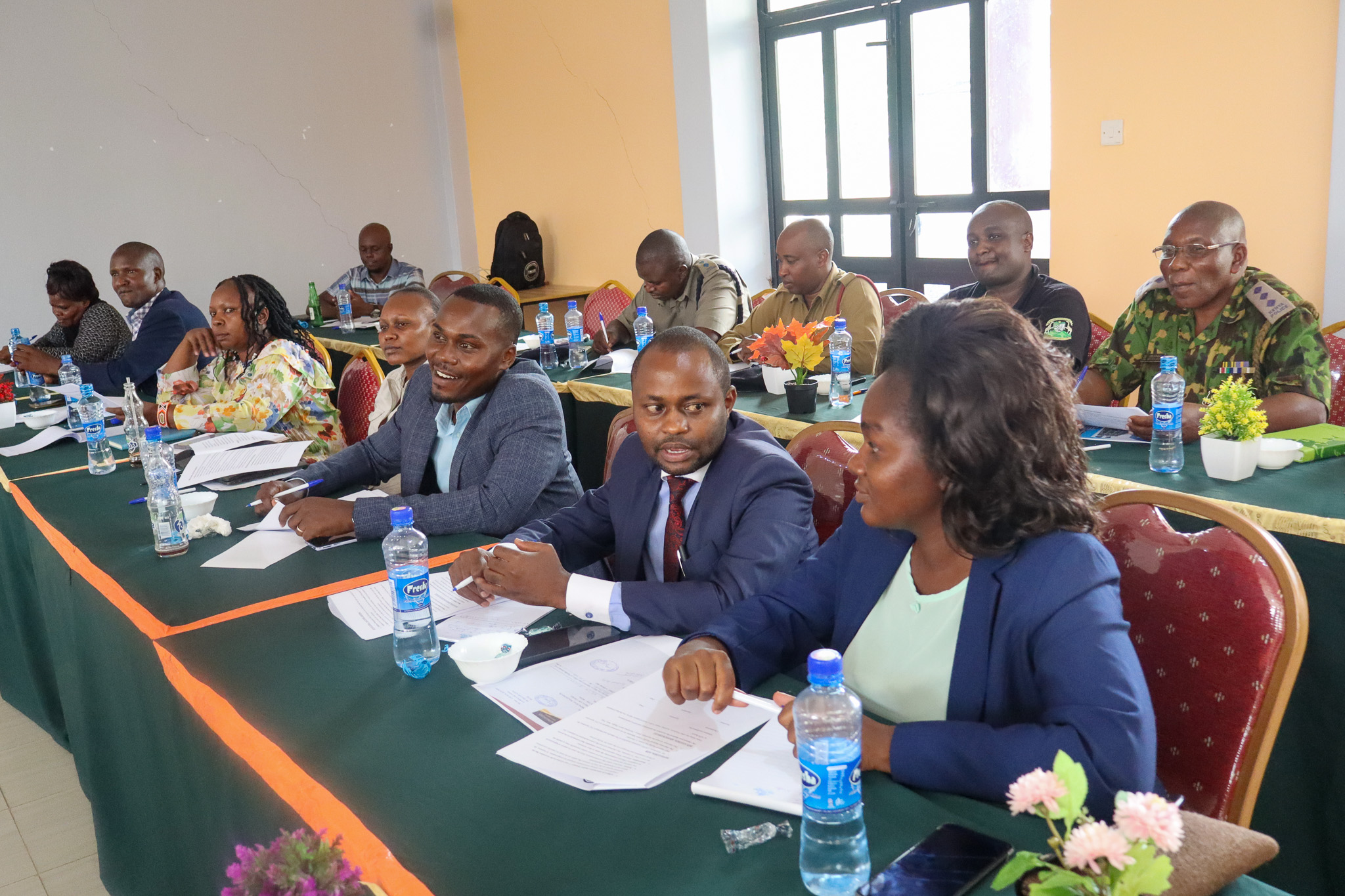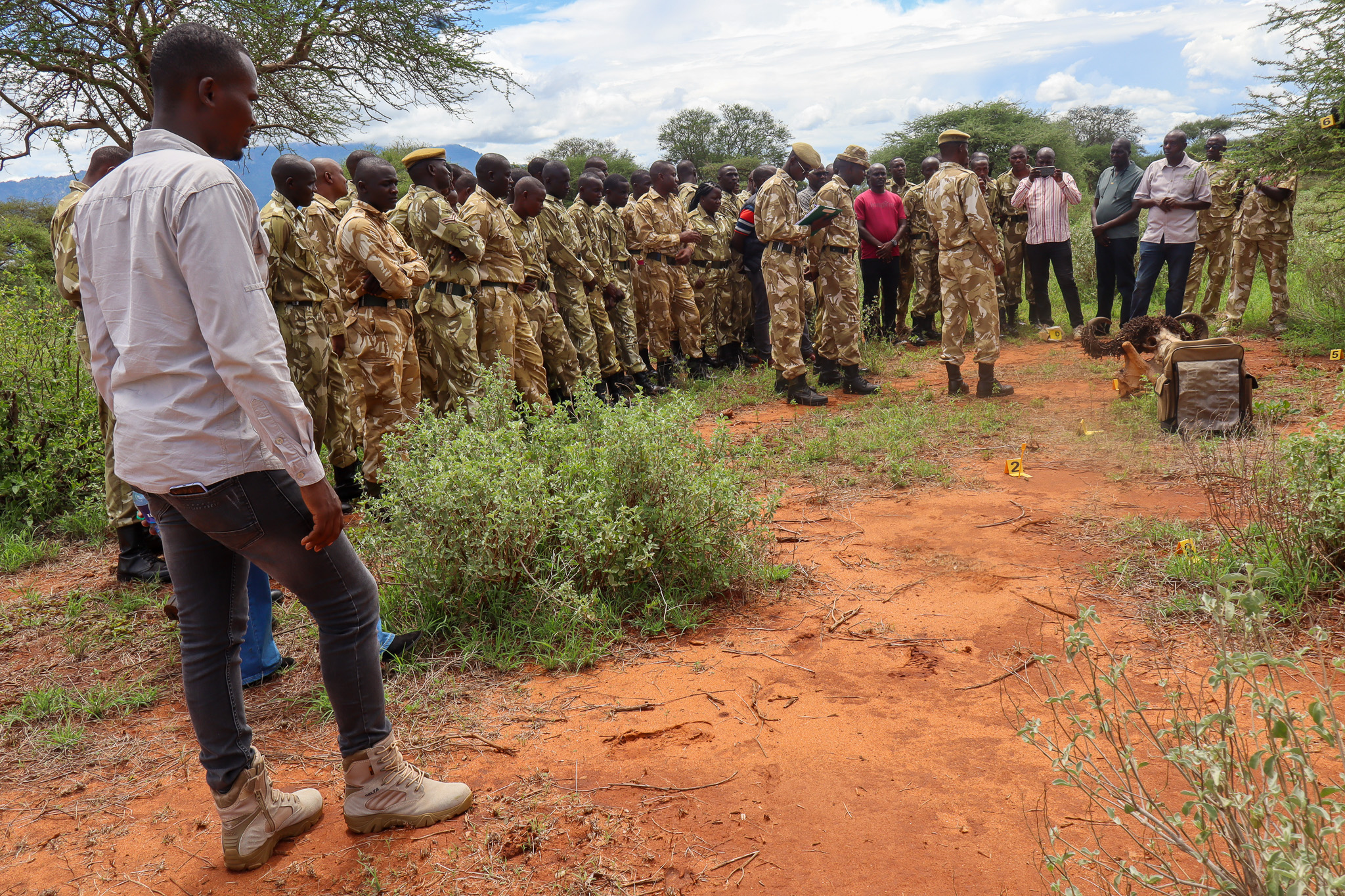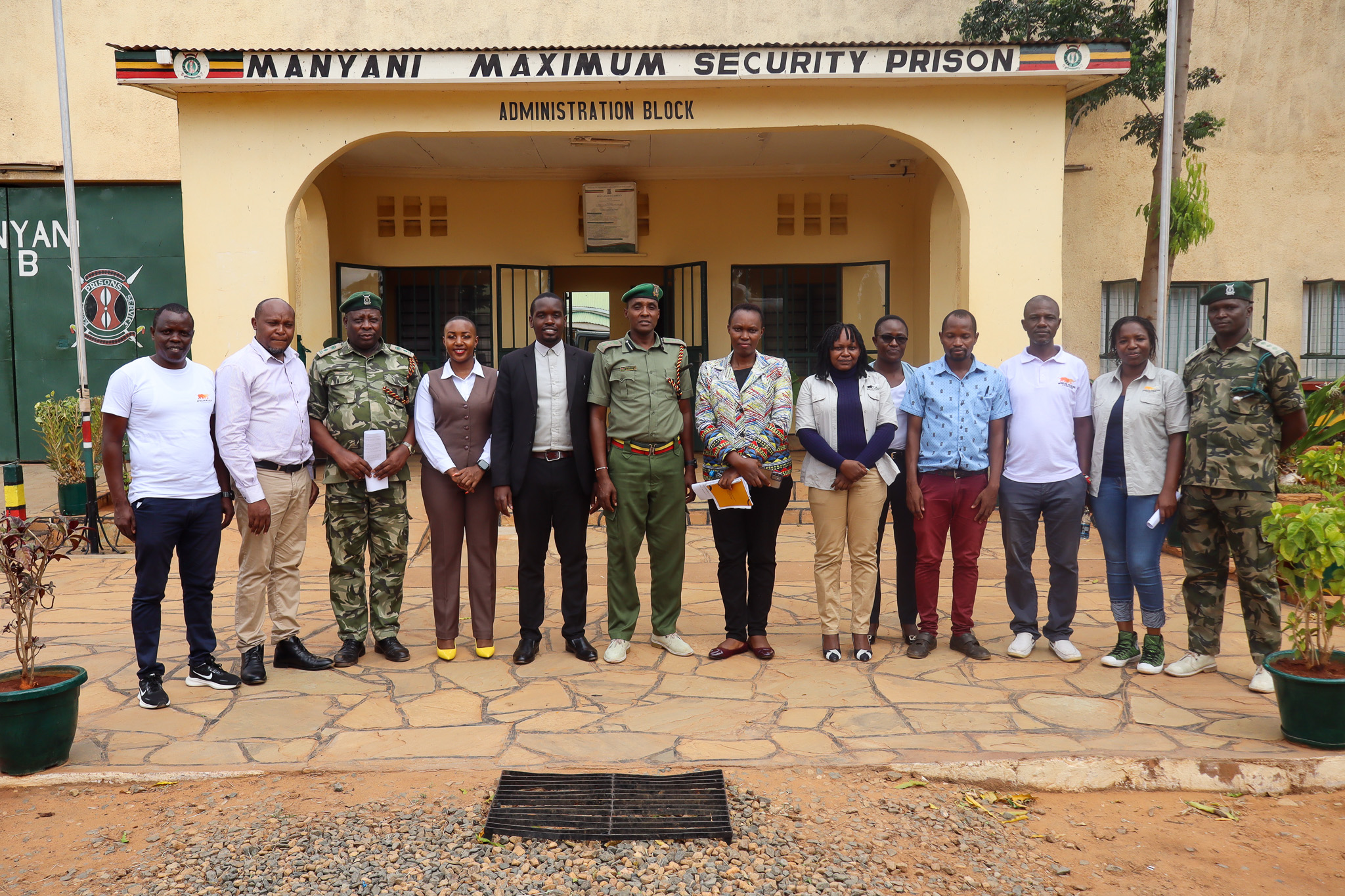When Justice Meets Conservation: How Legal Professionals Are Protecting Kenya’s Wildlife

Group photo during the first responders training for newly recruited KWS rangers at Lake Jipe grounds
In the arid stretches of southeastern Kenya lies the Tsavo Landscape, one of Africa’s most significant biodiversity hotspots. While wildlife rangers and conservationists have long been the frontline defenders of nature, a new and perhaps unexpected group is now stepping in—judges, prosecutors, and legal professionals.
Through a unique program led by AWF and funded by the U.S Department of State - Bureau of International Narcotics and Law Enforcement Affairs, members of the judiciary are being engaged as active participants in wildlife protection. From courtroom sensitization to ranger training, this cross-sector collaboration is redefining the fight against wildlife crime.
Integrating Conservation into the Justice System
In March 2024, AWF organized a Bar-Bench meeting in Taita Taveta County, bringing together 17 lawyers, two judges, three magistrates, two prosecution counsels from the Office of the Director of Public Prosecutions (ODPP), and several court officials. The focus: strengthening the link between wildlife conservation and legal practice.
“Too often, we overlook how illegal wildlife activities—like poaching or illegal grazing—are also environmental justice issues,” says Christine Mwaniki, Project Assistant for Counter Wildlife Trafficking at AWF. “These engagements help legal actors adopt the conservation agenda within their mandates.”
The event spotlighted the role that legal professionals can play in curbing wildlife crime, especially as poaching and illegal trade continue to threaten Kenya’s rich biodiversity.
Court User Committees: A Platform for Impact

Members of Mutomo Law courts CUC during the wildlife crime sensitization
At the core of this initiative are Court User Committees (CUCs)—forums that bring together all stakeholders involved in court processes. These committees help identify and address challenges within the justice system, and now, they’re also helping address conservation issues.
AWF works with six courts across the Tsavo landscape, including Mutomo, Makindu, Loitoktok, Taveta, and Voi, to incorporate wildlife protection into CUC meetings and court open days.
During these sessions, AWF sensitizes communities, police, court staff, and the general public about the consequences of wildlife crimes such as bushmeat poaching, illegal logging, and land encroachment. As a result, these crimes are increasingly being treated with the seriousness they deserve in courtrooms.
AWF’s court monitors have also tracked data showing a promising trend: reported wildlife crime cases dropped from 150 in 2023 to 87 in 2024. Christine attributes this decline to increased public awareness and stronger judicial deterrence.
Training Rangers and Investigators as First Responders

Practical session on securing a crime scene during the first responders training for newly recruited KWS rangers at Lake Jipe
Beyond courtroom engagement, AWF is equipping rangers and investigators with the tools they need to effectively handle wildlife crime scenes and court procedures.
Through First Responders Training, newly recruited rangers from the Kenya Wildlife Service (KWS) and LUMO Wildlife Conservancy are taught how to collect evidence, uphold the rights of suspects, and present admissible evidence in court. To date, 55 KWS rangers and nine LUMO officers have received this training.
“This training has helped create a more accountable and professional approach to law enforcement,” Christine explains. “Now, the Voi Law Courts, for example, are seen as a model for balanced and uncompromising sentencing in wildlife crime cases.”
These improvements not only result in more successful prosecutions, but also boost confidence in the justice system from both conservationists and communities.
Beyond Conviction: The Power of Rehabilitation

Group photo of AWF, ODPP and Prison staff during Manyani Maximum prison visit
One of the program’s most recent innovative aspects is its focus on the rehabilitation and reintegration of wildlife offenders. In collaboration with the ODPP, AWF is advocating for post-release support to reduce repeat offenses.
“Past offenders need options,” Christine says. “When we involve them in sustainable livelihoods after prison, they are less likely to return to poaching or trafficking. Some even become champions for conservation.”
This strategy is gaining traction, with courts increasingly opting for community service or restorative justice instead of jail time—especially for first-time or low-level offenders.
Building a Justice System for People and Planet
The synergy between justice and conservation in the Tsavo landscape is proving that protecting wildlife isn't only the job of rangers and ecologists—it’s also a matter of rule of law.
Through court engagement, training programs, and community outreach, AWF is mobilizing the legal sector as a powerful ally in the conservation movement. The results are already visible in reduced crime rates, more robust prosecutions, and a growing sense of responsibility among legal professionals.
Conservation can’t succeed in isolation,” Benson Kasyoki, Legal Officer for Counter Wildlife Trafficking at AWF, emphasizes. “We need every sector—including the justice system to play its part.”